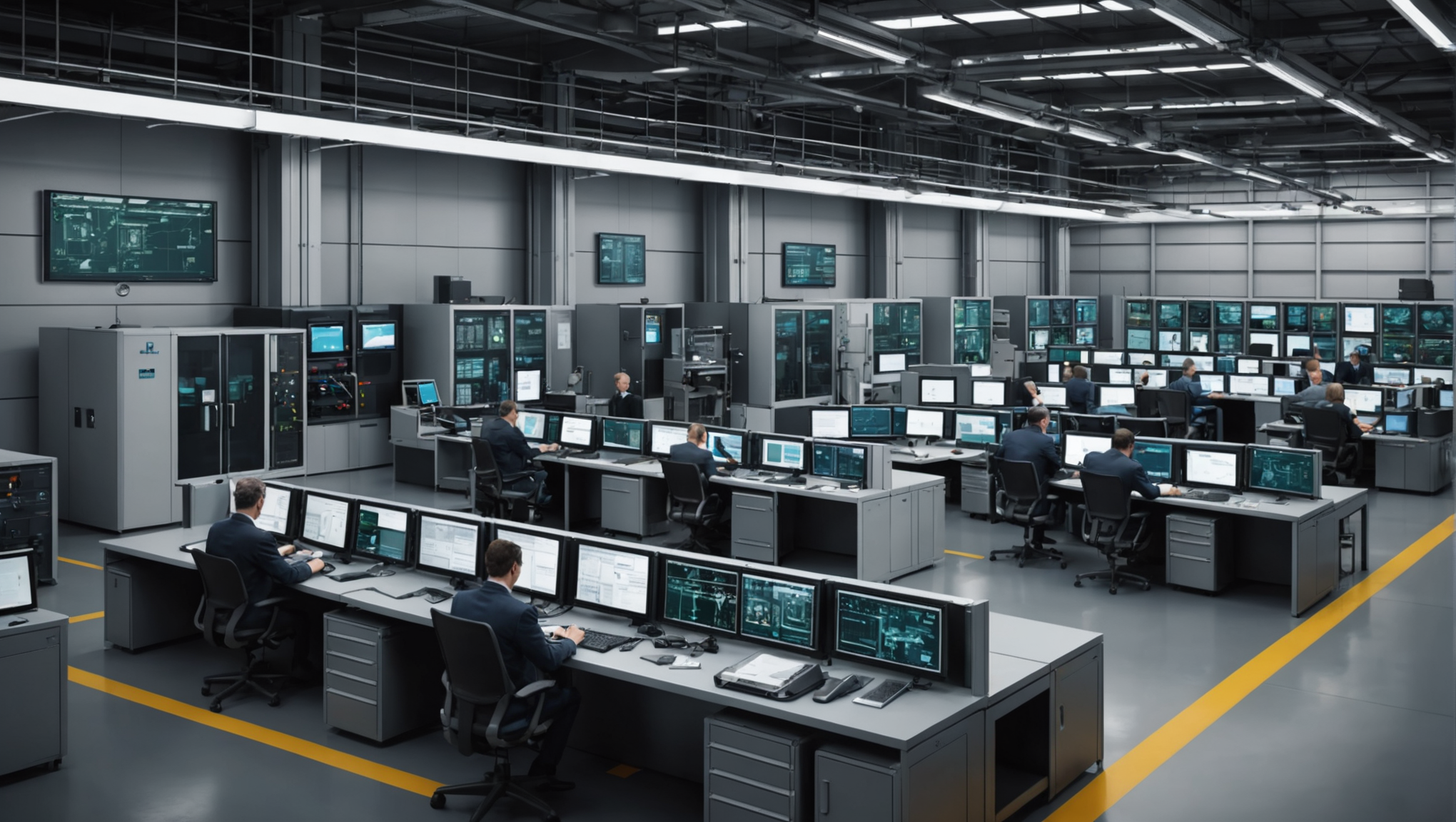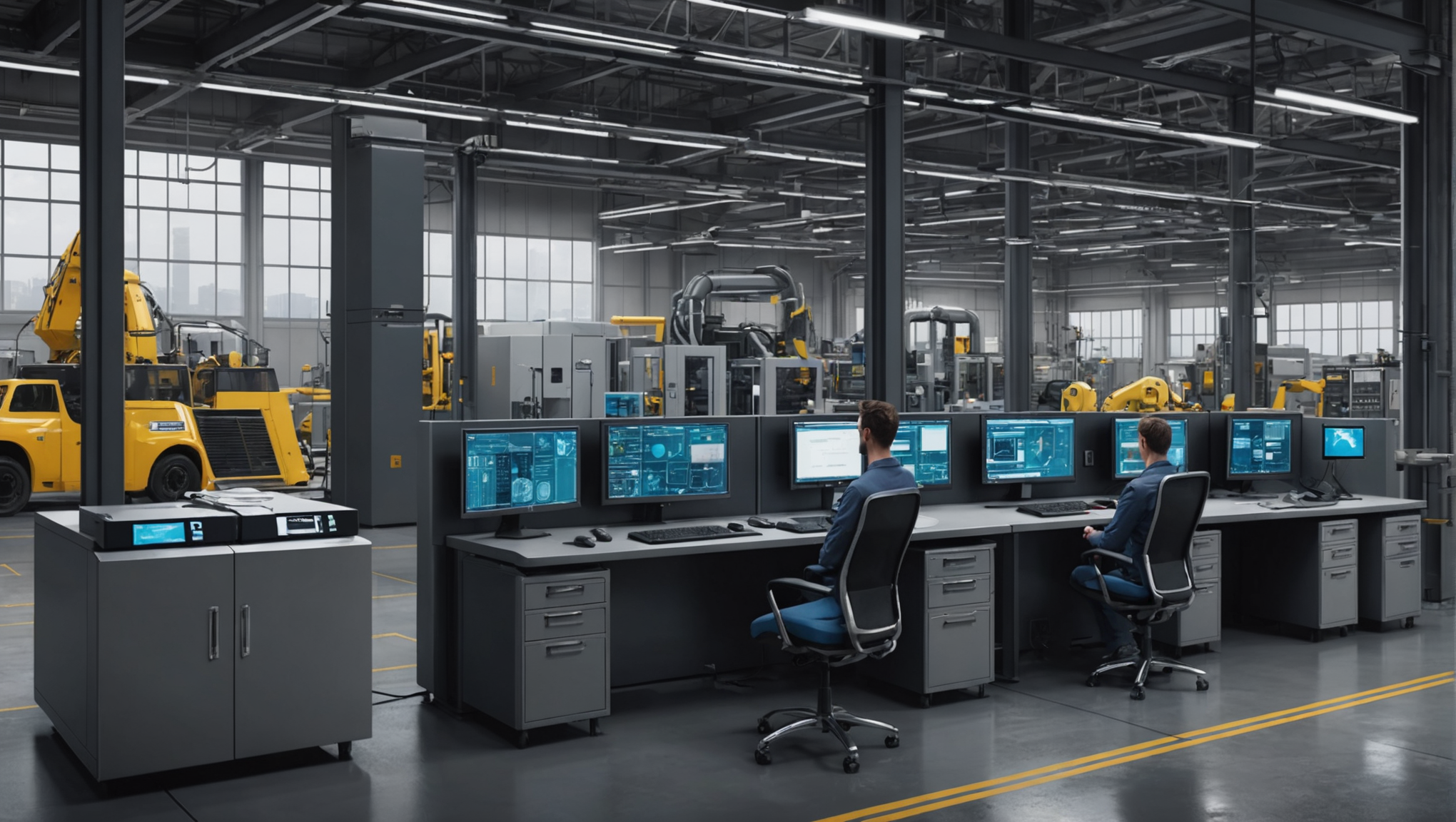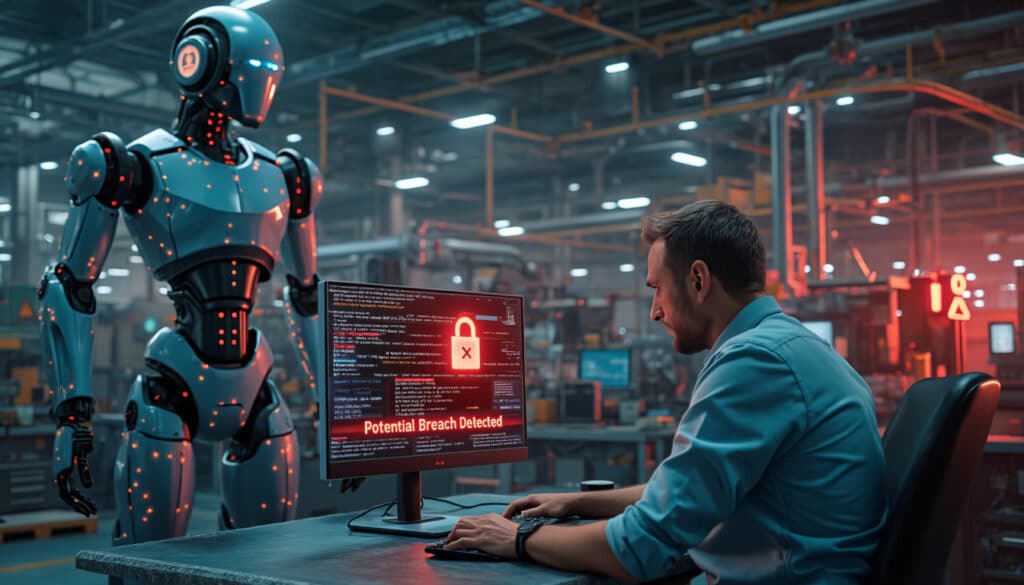The rapid rise of Industry 4.0 and the integration of connected technologies have transformed industrial systems. This evolution, while promising, exposes infrastructures to critical vulnerabilities, making the security of industrial systems more essential than ever. Each connected device, each operational network, becomes a potential access point for external threats. In this ultra-connected environment, it becomes imperative to equip infrastructures with robust cybersecurity measures tailored to the specificities of industrial systems.
Protecting these infrastructures is not limited to merely implementing security devices; it involves designing a secure architecture that considers operational requirements while complying with current legislation. Understanding the associated challenges and learning how to develop effective strategies to counter attacks are major tasks. By addressing the issues of cybersecurity, we also explore the importance of support in threat management and incident handling, to ensure the seamless operation of critical systems that underpin our modern economy.

In the era of Industry 4.0, the security of industrial systems has become an essential priority for companies wishing to navigate a constantly evolving technological landscape. Industrial systems, now interconnected with various digital technologies, are exposed to various threats ranging from sophisticated cyberattacks to human errors. This text explores the crucial importance of security and the different strategies to protect these modern infrastructures.
Table des matières
ToggleCurrent State and Challenges of Industrial Security
In 2023, according to a report from ANSSI, over 57% of industrial companies reported being victims of security incidents in the past two years, resulting in significant loss of time and resources. These alarming results highlight the importance of proactive security management. The increasing digitization of production systems and infrastructures has exposed them to risks such as ransomware, viruses, and other cyberattacks. Companies must therefore adopt an integrated approach to security, encompassing both cybersecurity and the physical protection of infrastructures.
Moreover, new technologies such as the Internet of Things (IoT) and artificial intelligence (AI) contribute to the complexity of industrial systems. For example, networking equipment has improved operational efficiency, but it has also opened the door to new vulnerabilities. A notable incident was the ransomware attack on a water treatment facility, which highlighted the importance of enhanced security in critical systems.
Protection Strategies and Practical Recommendations
To address these challenges, it is crucial to implement robust security strategies. Here are some practical recommendations that should be included in the security plan for industrial systems:
1. Manage authentication and access. Ensure that access to critical systems is strictly controlled. Use multi-factor authentication protocols to strengthen the security of connections.
2. Conduct regular risk assessments. Identify and prioritize assets based on their criticality, then deploy appropriate security measures. For example, systems managing sensitive data should be subjected to increased monitoring and regular penetration testing.
3. Educate employees. Training employees on best security practices is essential. A study has shown that up to 90% of data breaches result from human errors. By investing in ongoing training, companies can significantly reduce this risk.
4. Implement secure architecture. Design your systems based on robust security principles. This includes separating OT (Operational Technology) and IT (Information Technology) networks to prevent the spread of threats from one environment to another.
5. Apply regular updates. Industrial systems must be regularly updated to fix vulnerabilities. This includes not only software but also hardware. A striking example is some factories that have experienced production downtime due to the use of outdated operating systems.
6. Develop an incident response plan. A security incident can occur despite all precautions taken. Therefore, it is vital to have a plan that outlines the steps to contain the incident, assess the damage, and restore operations. A good example is the commitment of some companies to attack simulations to test and improve their response times.

Innovations and the Future of Industrial System Security
As industrial security evolves, new technologies are emerging to offer innovative solutions. Artificial Intelligence, for example, plays a key role in the proactive detection of threats, analyzing large amounts of data to identify suspicious behaviors in real-time. Additionally, advances in blockchain technology are promising for ensuring the integrity and traceability of transactions within industrial systems.
The development of security layers through the use of digital twins could also revolutionize the landscape of industrial security. These digital replicas of the system can simulate real-time behavior, allowing for the identification of security flaws before they are exploited by attackers. A case study demonstrating this is that of a gas production platform that managed to reduce its downtime through digital twins while improving its overall security level.
Beyond technological solutions, a often overlooked but crucial aspect is the importance of collaboration within the industry. Encouraging information sharing about threats and best practices among companies can help to create a more resilient ecosystem and to anticipate new trends in cybercrime.
In conclusion, with the constantly increasing threats to industrial infrastructures, strengthening the security of industrial systems is more than ever a necessity. By conducting rigorous risk assessments, applying best practices, and leveraging technological innovations, companies can not only protect themselves against attacks but also take advantage of the opportunities offered by digital transformation.





